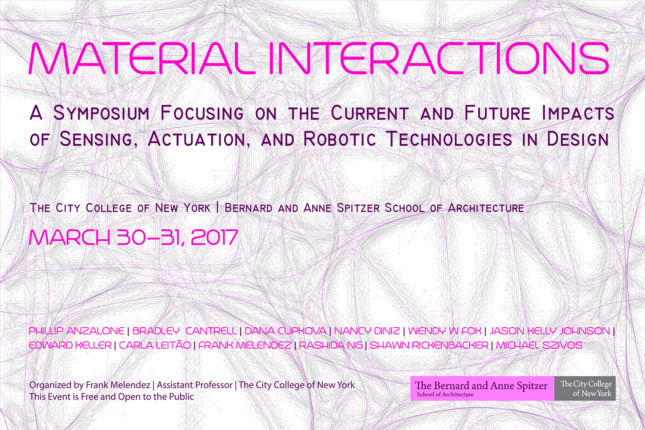For nearly three decades, architectural design strategies and methodologies involving modeling and making have been infused with processes that utilize digital design and fabrication technologies. The digital is no longer novel, but enmeshed within our daily lives in a post-digital culture. In more recent years, advances in materials, sensing, actuation, and robotic technologies, have altered the modes in which architects and designers engage spatiotemporal systems and human-machine-environment interactions. Novel architectures are being developed through innovative approaches in the design of responsive and adaptive systems that promote human interaction and result in corporeal, visceral, and ephemeral experiences. These kinetic, quasi-intelligent systems are being explored through emerging bio and synthetic materials, robotic systems, programmable matter, virtual environments, and deliberately altering, hacking, and tinkering with electronics.
Material Interactions, a symposium held at the City College of New York, Bernard and Anne Spitzer School of Architecture, will highlight current methodologies and question future potentials for sensing, actuation, and robotic technologies in the design of interactive systems. This symposium will bring together academics and practitioners to present and discuss current and future potentials for design processes that conflate technological prowess and playful experimentation as a means of interrogating, exploring, and discovering architectures and designs that posit new protocols in describing the relationships between bodies, machines, and environments.
